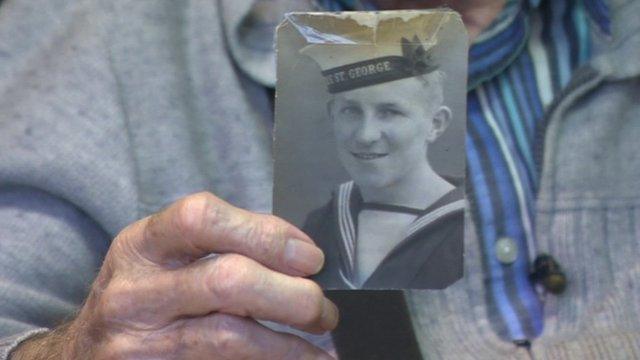Dame Vera Lynn: Who was she and why was she important?
- Published
- comments
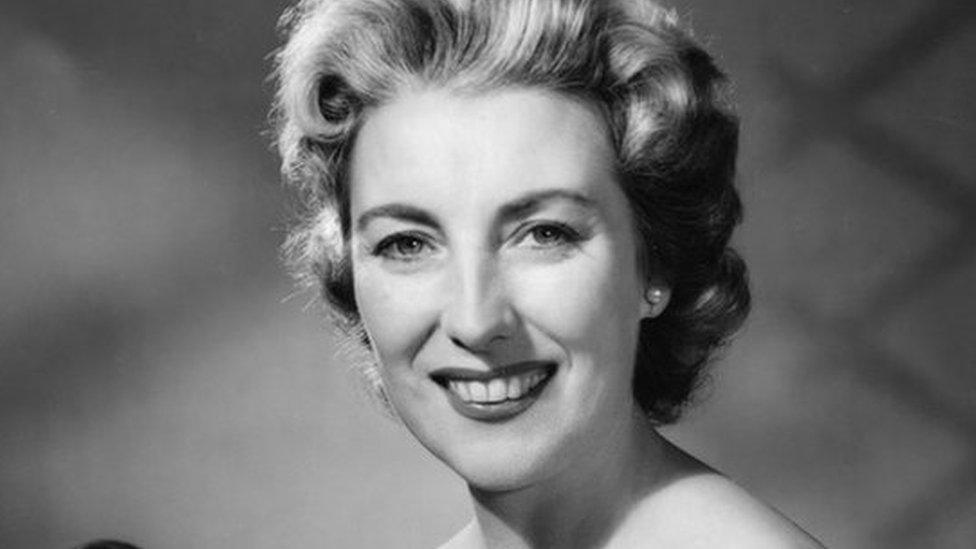
Tributes have been paid to the famous singer and songwriter Dame Vera Lynn who has died at the age of 103.
She was known for songs such as We'll Meet Again which lifted people's spirits during the Second World War.
Prime Minister Boris Johnson said Dame Vera had a "magical voice" that "uplifted our country in some of our darkest hours."
"Her voice will live on to lift the hearts of generations to come," he added.
Vera Lynn's music was so popular among army troops during the war, that she was nicknamed the 'Forces' Sweetheart'.
During the conflict, Vera travelled thousands of miles to meet soldiers at the front lines near to where battles took place.
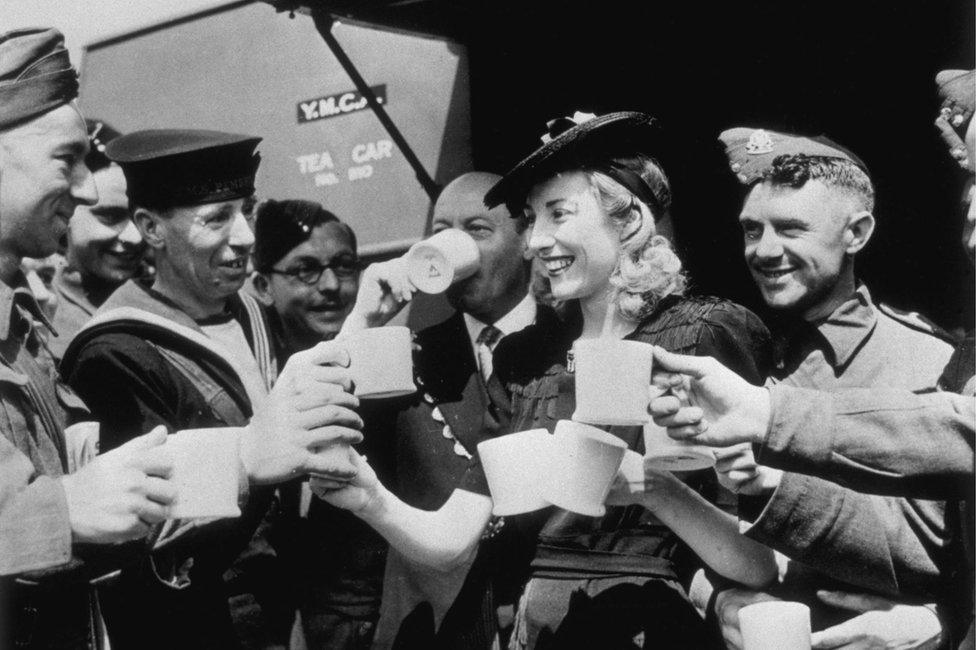
One of Vera Lynn's most famous songs, We'll Meet Again, was released in 1939 - she performed the song for troops all around the world during the Second World War
On trips to Egypt, India and Burma she entertained and sang for army camps and soldiers, including Captain Tom Moore.
"She had a huge impact on me in Burma and remained important to me throughout my life," said Captain Tom.
He added: "My thoughts are with Dame Vera Lynn's family at this sad time."
Who was Dame Vera?
Born Vera Margaret Welch on 20 March 1917, Dame Vera had a career that lasted for over 90 years.
She discovered her talent for singing at an early age and was performing in local clubs when she was seven. By the time she was 11, she had left school for a full-time career as a dancer and singer in a touring entertainment group.
She had also adopted a new name, Vera Lynn, borrowing her grandmother's maiden name.
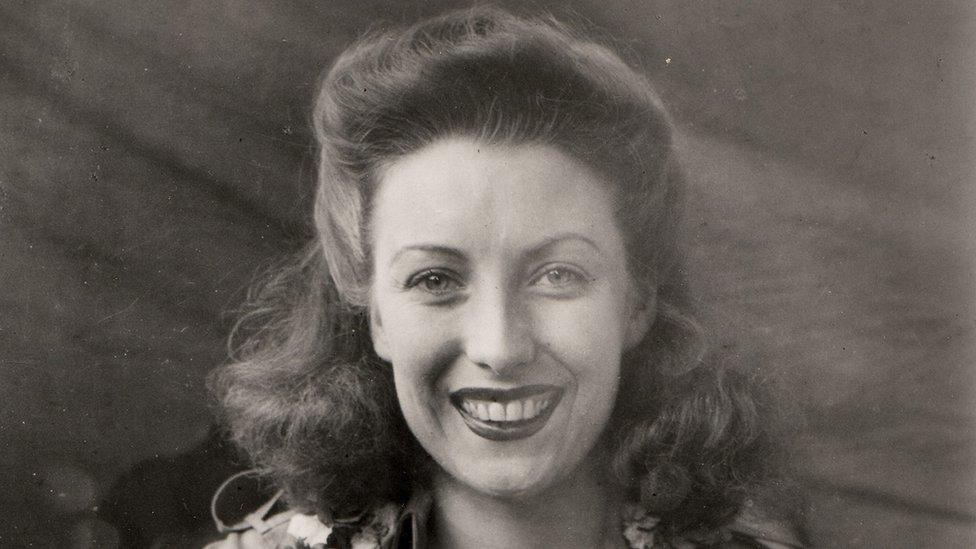
How did she become the 'Forces' Sweetheart'?
By the age of 16 she was the lead singer for several bands and she first appeared on the radio in 1935 which saw her popularity grow.
However, in 1939, Britain declared war with Germany. At the time Dame Vera said: "Oh well, bang goes my career."
But when she volunteered for war work, she was told the best thing she could do was to keep on being an entertainer.
A newspaper ran a poll to see who was the most popular singer among those in the armed forces. Dame Vera came out on top.
In the year that war broke out, Dame Vera first sang We'll Meet Again - the song that more than any other, came to be associated with the Second World War.
Her positive lyrics and songs of hope, helped many people who were suffering during blackouts, rationing and the bombings of the Blitz.
In May, Dame Vera became the oldest artist ever to secure a top 40 album in the UK. Outselling both the Arctic Monkeys and the Beatles.
In 2010 she made history as the oldest living artist to have a number one album.
Dame Vera is also the only recording artist in the world to have had songs in the pop charts since the 1940s all the way to the 21st century.
Why is Dame Vera's music still relevant today?
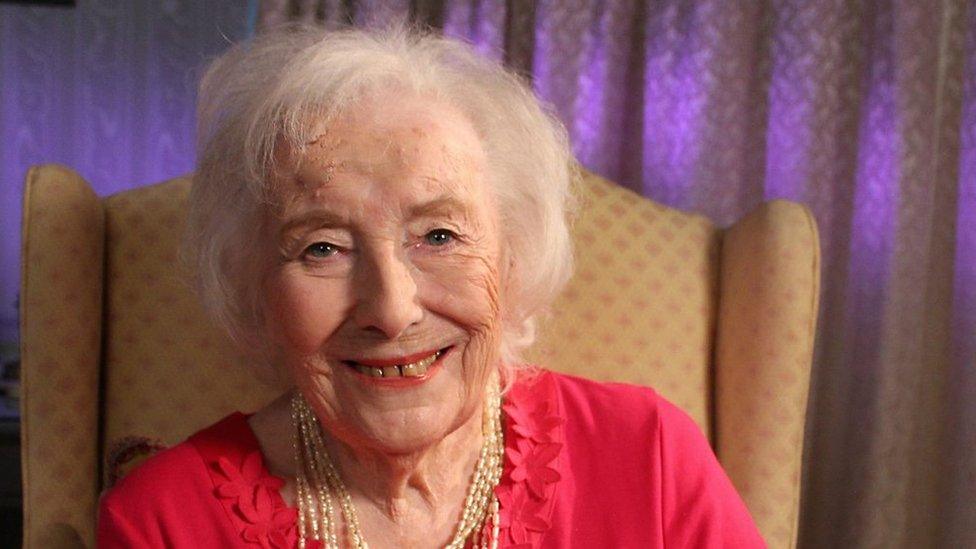
Dame Vera Lynn was known as the 'Forces' Sweetheart'
The Royal British Legion, a charity which supports those who've served in the armed forces, described Dame Vera Lynn as "an unforgettable British icon, symbol of hope to the Armed Forces community past and present."
Dame Vera played a huge part in the lives of the wartime generation - including the Queen who was a young woman during World War Two.
Earlier this year when she addressed the nation during the coronavirus pandemic, the Queen referred to Dame Vera's lyrics. She told people who had to stay home and couldn't see their relatives: "We'll meet again."
WATCH: The Queen speaks to the nation in April 2020 referencing the Dame Vera Lynn song We'll Meet Again
In May this year, that same song was sung by many families at socially-distanced street parties around Britain during VE Day celebrations.
Dame Vera also became the oldest artist ever to secure a top 40 album in the UK.
At the time she spoke about the bravery and sacrifice that characterised the nation back in World War Two, but also now during the coronavirus pandemic.
"Hope remains even in the most difficult of times", she said.
- Published20 May 2020
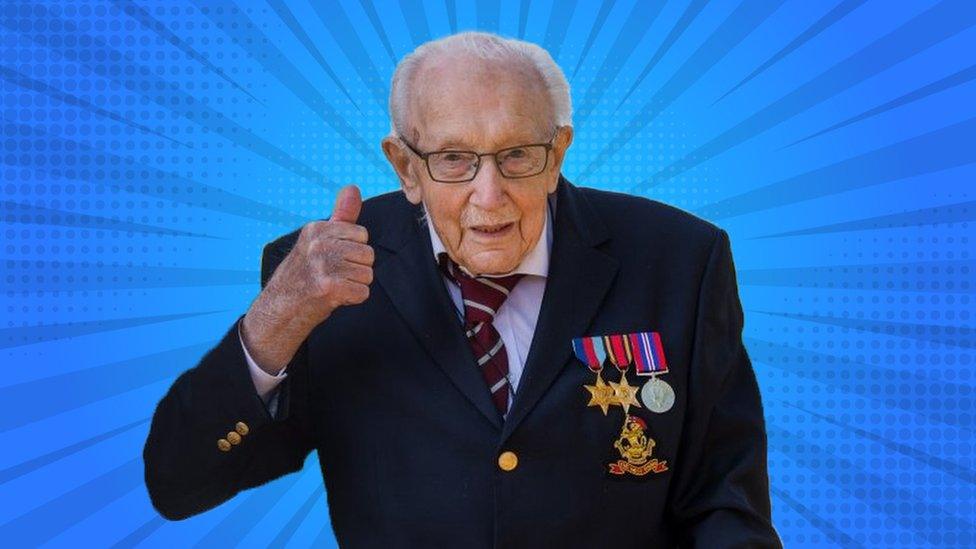
- Published9 May 2020
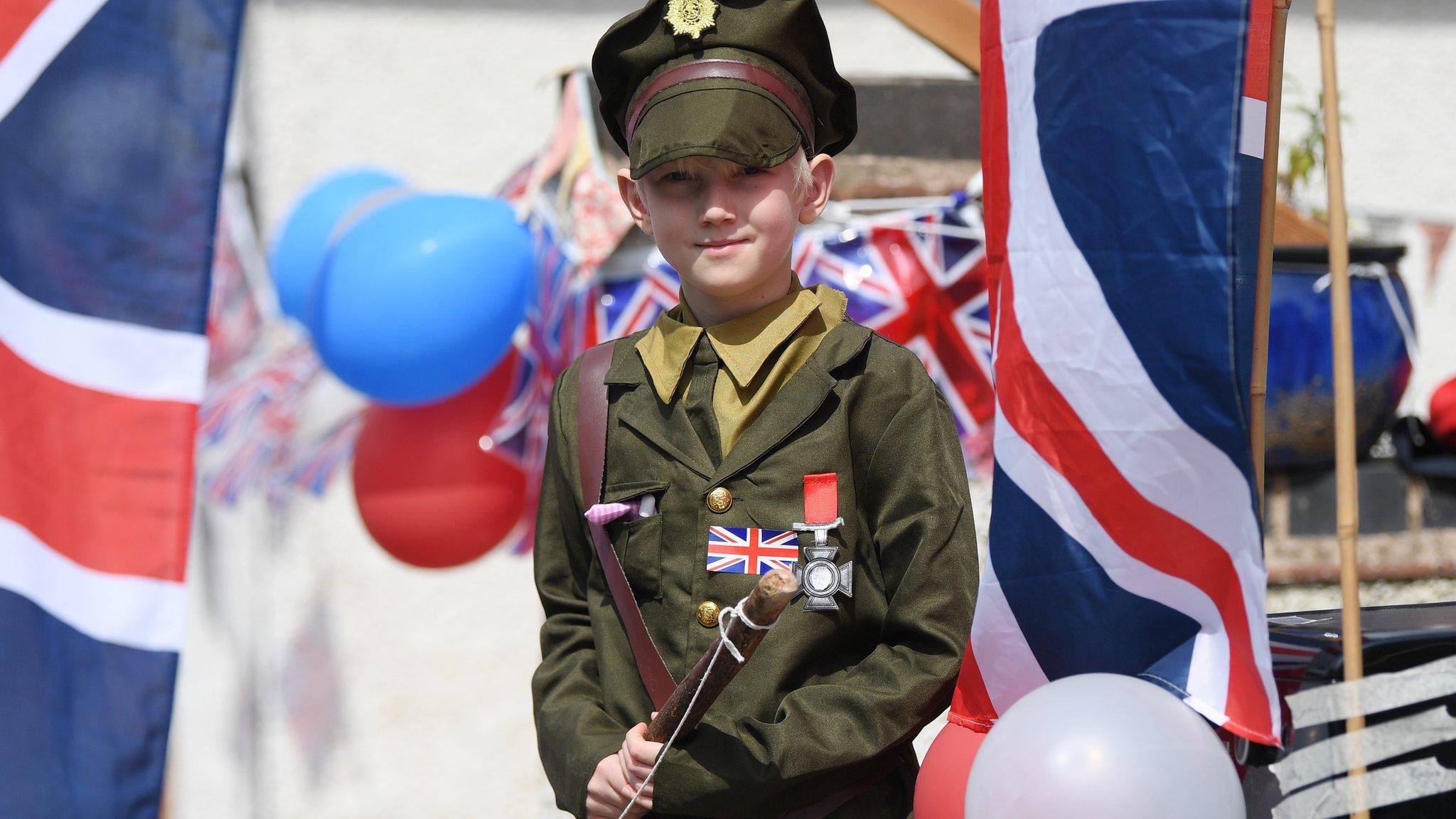
- Published10 November 2016
